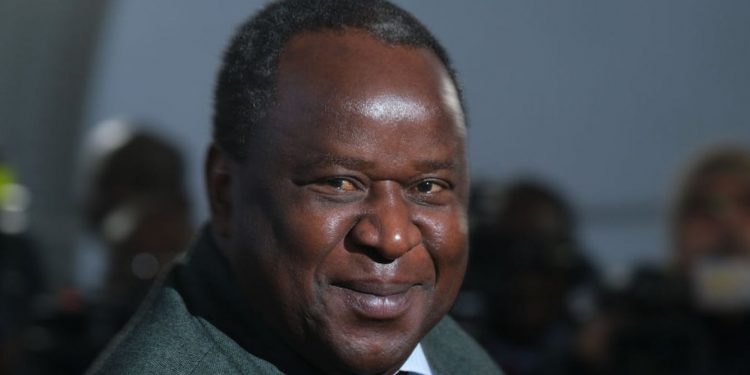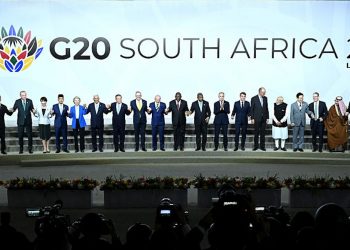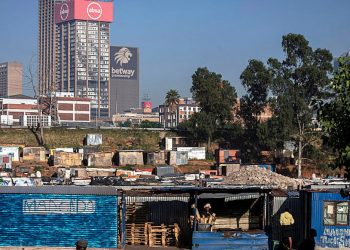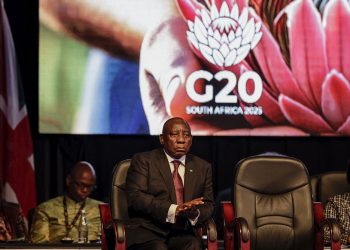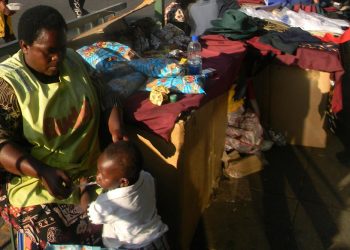Tito Mboweni, former South African Reserve Bank Governor, Minister of Finance, and Minister of Labour was arguably one of the country’s most consequential economic policymakers and drove several significant economic
reforms.
Mboweni passed away on 12 October 2024 after a short illness.
Born on 16 March 1959, he received a Bachelor of Arts in Economic and Political Science from the National University of Lesotho in 1985. He had attended the University of the North between 1979 and 1980 but left South Africa to go into exile in his second year of studies. In 1987, he obtained a Master of Arts in Development Economics from the University of East Anglia in the UK.
He began his career in government as Minister of Labour in President Nelson Mandela’s 1994 administration. As the first Minister of Labour in the new democratic South Africa, he took several steps to improve the relationship between business and labour.
Among these were major legislative reforms, including the Basic Conditions of Employment Act, Labour Relations Act, Mines Health Safety Act and the NEDLAC Act, designed to improve cooperation between different “constituencies” – labour, business, and government.
He was appointed as the Eighth Governor of the South African Reserve Bank in
1999. In this role he introduced inflation targeting and presided over the first monetary policy committee meetings. This substantially modernised the Bank’s approach. For instance, Mboweni introduced a monetary policy statement outlining the reasons for the Bank’s decisions. These were televised, bringing new transparency to the conduct of monetary policy. Before this, the bank’s targeted monetary policy aggregates, and its communications, were made through printed documents.
Monetary Policy Forums took monetary policy to many parts of the country, bringing a new openness and engagement between the Bank and ordinary South Africans.
He held the position of Governor until 2009. But his legacy endures. The South African Reserve Bank is highly regarded across the world, with an inflation rate that is firmly within the target range and well-anchored inflation expectations.
As finance minister
Shortly after Cyril Ramaphosa was inaugurated as President of the Republic of South Africa in 2018, the then Finance Minister Nhlanhla Nene resigned. The President appointed Mboweni as Minister of Finance in October 2018.
Mboweni made three consequential decisions in South Africa’s economic policy
trajectory.
The first was the decision, in 2019, to freeze government wages from 2020. He was alarmed by the rapid and unsustainable increase in government wages. Together with slowing economic growth, this led to a fiscal position that was deteriorating at an alarming pace. The wage freeze ultimately started the slow return to the fiscal rectitude that had been the hallmark of the period of government before Jacob Zuma became president in 2009.
The second, also in 2019, was the publication of a paper on economic growth. It was known officially as “Economic transformation, inclusive growth, and competitiveness: Towards an Economic Strategy for South Africa”.
Unofficially it was known as the “Tito Paper”.
This set out a programme of much-needed economic reforms – including steps to lift the restrictions on private power generation. In the six years since the publication of the policy paper (and the subsequent reforms), a total of 6 GW of non-Eskom electricity has been added to the grid, saving South Africa six stages of load-shedding.
Other recommendations of the paper are being followed, including those for rail, telecommunications and ports.
The third was the introduction of a comprehensive response to the COVID-19 pandemic. This included a significant expansion of the grants system, with a Social Relief of Distress grant pegged at R350 per person per month. Research by the NIDS-CRAM initiative, led by Dr Nic Spaull of Stellenbosch University, has highlighted how the grant positively affected millions of people’s lives.
Enduring legacy
It is difficult to think of any other economic policymaker who has left such an enduring legacy.
Stellenbosch University awarded him an honorary doctorate in 2010 and appointed him Professor Extraordinary of Economics from 2002 to 2005 . He was a frequent participant at Bureau for Economic Research conferences. There, his engaging speaking style made him a popular drawcard.
His love of red wine and engaging conversation made him a popular visitor at the university. In 2010, he spent time at the Stellenbosch Institute for Advanced Studies as part of a research group working on the global financial crisis and its consequences for democracy.
This is an edited version of a tribute published by the Bureau for Economic Research, Stellenbosch University.
Roy Havemann is a senior economist at the Bureau for Economic Research where he leads the Impumelelo Economic Growth Lab. He was previously at the National Treasury where, amongst other things, he was Tito Mboweni's speechwriter.

